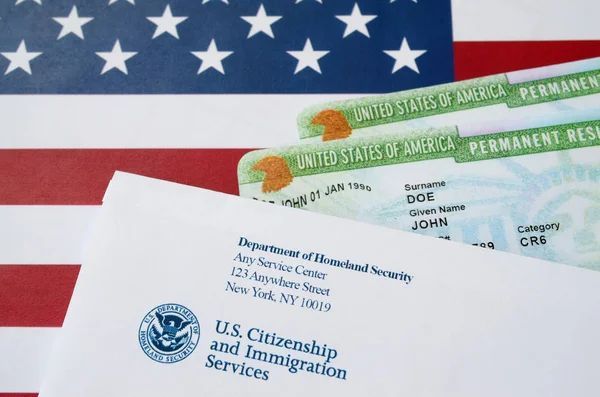🗣️ Fluent in English, Spanish & Portuguese 🌍
Federal Judge Denies Parole in Place Program
Is This the End of the Parole in Place Program? What This Means for Immigrant Families?

In a significant decision that impacts many immigrant families, the United States District Court for the Eastern District of Texas has ruled to end the Parole in Place (PIP) program, stating limitations on the statutory authority of the Department of Homeland Security (DHS). The court’s decision in case #6:24-cv-00306 rejects the PIP program that attempted to allow certain immigrants to stay in the United States legally without having to leave and re-enter.
The Biden administration sought to use Parole in Place (PIP) as a lifeline for immigrants who, for humanitarian or familial reasons, needed temporary legal relief to remain in the country and work toward legalizing their status. However, the court's ruling declared that “defendants lack statutory authority under 8 U.S.C. § 1182(d)(5)(A) itself (as opposed to under other provisions modifying or supplementing that authority) to grant parole ‘in place’ to aliens.” In essence, the court held that DHS does not have the power to grant parole to individuals already within U.S. borders, as current law reserves parole authority for those outside the United States.
This decision raises critical questions about the future of humanitarian relief within U.S. immigration policy, particularly for individuals already present in the country. With the program now struck down, the responsibility shifts to Congress to address the need for domestic parole options if humanitarian protections are to continue.
In this article, we will explore the court’s reasoning, the legal framework surrounding PIP, and the potential consequences of this decision on immigrants who previously relied on the program for stability. Finally, we will provide hypothetical scenarios that illustrate how the absence of PIP may impact families in the U.S.
Disclaimer: This article is for informational purposes only and does not constitute legal advice. No attorney-client relationship is formed until a retainer agreement has been signed.
1) What is the Parole in Place Program?
The Parole in Place (PIP) program was designed as a form of temporary relief to help immigrants remain in the United States while attempting to adjust their status. Under typical immigration procedures, certain undocumented individuals must leave the country, attend a consular interview abroad, then return to the U.S. and undergo inspection upon reentry before becoming eligible to apply for lawful permanent residency. This process, however, carries risks—applicants may be denied at the embassy, potentially leaving them stranded in their home country without a visa to return.
With PIP, certain undocumented individuals could instead apply for temporary legal status without having to leave the U.S., allowing them to remain in the country while they pursued pathways to legal residency. For many, this temporary protection was crucial, as it eased the fear of being “stuck” abroad due to a visa denial. PIP offered a more stable option, reducing the risk and hardship associated with leaving the country to seek legal status, and literally keeping families together.
The authority for DHS to grant parole is rooted in 8 U.S.C. § 1182(d)(5)(A), which grants the agency the discretion to temporarily admit individuals “for urgent humanitarian reasons or significant public benefit.” Historically, however, this authority was interpreted to apply primarily to those seeking entry at U.S. borders. By expanding the concept to include individuals already within the United States, PIP marked an innovative approach to providing relief without requiring individuals to leave and re-enter the country—a process that would otherwise be burdensome or impossible for many.
PIP provided a crucial stopgap for immigrants needing immediate protection while they explored more permanent options for adjusting their status. But with the recent court decision ruling against DHS’s authority to grant such parole domestically, the program’s future is effectively halted. This ruling not only closes a pathway that many relied on but also calls into question how similar forms of parole may be limited in the future.
2) Key Elements of the Texas Court Decision
The recent decision by the United States District Court for the Eastern District of Texas struck down the Parole in Place (PIP) program, citing limitations on the Department of Homeland Security’s (DHS) statutory authority. In case #6:24-cv-00306, the State of Texas challenged DHS’s use of PIP, arguing that it exceeded the agency's authority under U.S. immigration law. Texas claimed that 8 U.S.C. § 1182(d)(5)(A)—the statute governing parole authority—limits DHS’s parole powers to individuals seeking entry from outside the United States, not those already present within the country.
The court agreed with Texas, finding that DHS’s extension of parole “in place” overstepped its authority. In the court’s words, “defendants lack statutory authority under 8 U.S.C. § 1182(d)(5)(A) itself (as opposed to under other provisions modifying or supplementing that authority) to grant parole ‘in place’ to aliens.” This strict interpretation means that parole, as currently defined by law, only applies to individuals at U.S. borders or outside the country.
Judge J. Campbell Barker further emphasized that DHS’s actions were inconsistent with the intent of the statute. By allowing parole “in place,” DHS effectively redefined “parole into the United States” to include individuals already within U.S. borders—a practice the court found unsupported by the law. As a result, the court set aside and vacated the PIP policy, effectively terminating the program and limiting DHS’s authority to grant similar forms of parole within U.S. borders.
This decision not only affects PIP but also sets a legal precedent that could restrict DHS from implementing similar policies for domestic parole. The ruling emphasizes that any expansion of parole authority within U.S. borders must come from Congress, underscoring the limits of administrative action in immigration policy.
3) Implications of the Court’s Decision
The Texas court’s decision to vacate the Parole in Place (PIP) program has significant implications for immigrants who relied on this pathway for temporary legal relief. Without PIP, many individuals who are already present in the U.S. may lose a key option for securing temporary legal status, leaving them exposed to potential deportation and unable to pursue lawful permanent residency without first departing the country. This shift places immigrants in a challenging position, particularly those who fear the risks and uncertainties of leaving the U.S. to seek a visa from a consulate abroad.
The ruling also narrows the scope of DHS’s authority, reinforcing that any expansion of parole must be explicitly authorized by Congress. This interpretation of 8 U.S.C. § 1182(d)(5)(A) places new limits on DHS’s ability to use humanitarian parole programs domestically, likely influencing how the agency approaches similar immigration relief efforts in the future. For individuals already residing in the U.S. who might have previously benefited from PIP, this decision closes off a significant avenue of relief, requiring alternative pathways that may not be accessible or feasible for everyone.
In addition to its impact on individuals, this decision underscores the ongoing tensions within immigration policy, where the authority of administrative agencies like DHS is scrutinized against statutory boundaries set by Congress. The court’s ruling highlights the need for legislative solutions to address humanitarian parole domestically. Without action from Congress, many individuals who might benefit from such relief will be left without viable options, potentially leading to family separation, economic hardship, and other societal impacts.
As DHS now lacks the authority to implement domestic parole policies similar to PIP, the onus falls on Congress to create a legal framework that addresses these humanitarian needs. Until then, immigrants who previously relied on PIP are left in a state of uncertainty, facing limited avenues for relief and increased risks of removal.
4) Potential DHS Appeal
It is likely that the Department of Homeland Security (DHS) will appeal this decision. If DHS moves forward with an appeal, it could take months or even years for the appeals court to reach a decision. Should the appeal be denied, the chances of the Supreme Court hearing the case are slim, given the current conservative majority. This means it could be a long time before we have a final answer on whether Parole in Place (PIP) is valid and can continue as a form of relief.
In the meantime, the future of PIP remains uncertain, leaving immigrants who relied on it in a difficult position. Another potential pathway for relief would be legislative action from Congress to create a similar program. However, with the potential for political shifts following the 2024 election, particularly under Trump’s administration, humanitarian relief may not be a legislative priority.
5) Conclusion
The recent decision by the Texas court to vacate the Parole in Place (PIP) program has far-reaching implications for immigrants who relied on it as a lifeline for temporary legal status. By ruling that the Department of Homeland Security (DHS) lacks statutory authority to offer PIP within U.S. borders, the court has effectively closed an important avenue for individuals seeking a stable legal foothold while working toward permanent residency.
For now, the future of PIP remains uncertain. While DHS may appeal, the outcome of any higher court review could take years, leaving affected individuals in prolonged uncertainty. Without PIP, immigrants who previously relied on this program must now face heightened risks of removal and the challenging prospect of obtaining legal status through more complex, and often inaccessible, avenues.
The decision also highlights a broader issue within U.S. immigration policy: the balance of power between legislative authority and administrative discretion. In the absence of congressional action, the capacity for agencies like DHS to implement humanitarian programs remains limited. For immigrants who depend on this support, this ruling emphasizes the need for a legislative solution to address these gaps, ensuring that humanitarian relief options remain available.
As we await further developments, immigrant communities and their supporters face difficult decisions in navigating this new legal landscape. The story of PIP’s termination serves as a reminder of the complex interplay between immigration law and policy—and the human impact of these decisions on families, individuals, and communities across the country.
If you have any questions about the recent changes to the Parole in Place (PIP) program or need guidance on how this decision might impact your situation, please don’t hesitate to contact Quattrochi, Torres and Taormina, P.A. Our experienced immigration attorneys are here to provide clarity and support, helping you navigate this complex legal landscape. Reach out to us today to discuss your options and find the best path forward.
References:
- United States District Court for the Eastern District of Texas. Final Judgment in Case No. 6:24-cv-00306. Available at: https://ago.mo.gov/wp-content/uploads/2024-PIP-1107_121-Final-Judgment.pdf
- U.S. Citizenship and Immigration Services. Keeping Families Together Program Overview. Available at: https://www.uscis.gov/keepingfamiliestogether
Disclaimer: The information provided in this blog post is for general informational purposes only and does not constitute legal advice. The content is not intended to create, and receipt of it does not constitute, an attorney-client relationship. No action should be taken based on the content of this blog post without first consulting qualified legal counsel. While every effort has been made to ensure the accuracy and completeness of the information, Quattrochi, Torres & Taormina, P.A. makes no warranties or representations as to the accuracy, completeness, or suitability of the information for any purpose. Quattrochi, Torres & Taormina, P.A. will not be liable for any errors or omissions in this information nor for the availability of this information. Any reliance you place on such information is strictly at your own risk. Quattrochi, Torres & Taormina, P.A. disclaims any and all liability with respect to actions taken or not taken based on the contents of this blog post to the fullest extent permitted by law. This post does not cover every possible situation, and you should always consult with an attorney or the relevant agency before taking any action. By using this site and relying on the information provided, you agree that Quattrochi, Torres & Taormina, P.A., its partners, employees, and affiliates, shall not be held liable for any direct, indirect, incidental, special, or consequential damages or losses, whether in contract, tort, or otherwise, arising out of or in connection with the use of the information contained in this blog post.

CONTACT US
950 S. Winter Park Dr., Suite 207
Casselberry, FL 32707
PRACTICE AREAS










